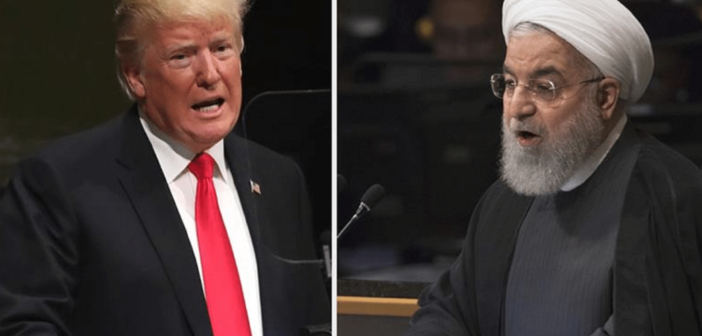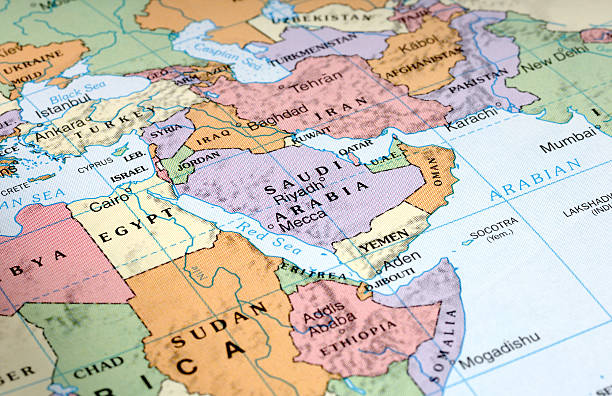
During his first visit to Moscow on 6-8 July 2009, President Obama tried to “reset” relations. Unfortunately for the international community, this failed to materialize. The Arab Spring led to a new set of confrontations. Snowden affair became an irritant and led to the cancellation by Washington of an Obama-Putin summit that was to take place during the G-20 meeting in St. Petersburg on 5-6 September 2013. Yet a brief encounter of the two leaders there paved the way for the agreement on the elimination of Syrian chemical weapons only to be followed by the crisis in Ukraine.
Looking at the Syrian chemical weapons example I have more than once expressed the view that “compartmentalization” of issues could help US-Russia relations. I thought that the finalization of the Iran nuclear deal was a step in this direction.
As a matter of fact, on July 14, 2015, the day Iran and the P5+1 announced the JCPOA, President Obama told Thomas L. Friedman of The New York Times,
“Russia was a help on this. I’ll be honest with you. I was not sure given the strong differences we are having with Russia right now around Ukraine, whether this would sustain itself. Putin and the Russian government compartmentalized on this in a way that surprised me, and we would have not achieved this agreement had it not been for Russia’s willingness to stick with us and the other P5-Plus members in insisting on a strong deal.
“I was encouraged by the fact that Mr Putin called me a couple of weeks ago and initiated the call to talk about Syria. I think they get a sense that the Assad regime is losing a grip over greater and greater swaths of territory inside of Syria [to Sunni jihadist militias]and that the prospects for a [Sunni jihadist] takeover or rout of the Syrian regime is not imminent but becomes a greater and greater threat by the day. That offers us an opportunity to have a serious conversation with them.” (emphasis added)
However, for Russia and the Assad regime time was of the essence. Only hours after having delivered clashing remarks, Presidents Obama and Putin met on the sidelines of the 70th United Nations General Assembly. This was on September 27, 2015, their first meeting in two years.
Only two days later, President Putin gave an interview to TV channels CBS and PBS. He said, “… you are talking about the Syrian army fighting against its people. But take a look at those who control 60 per cent of Syrian territory. Where is that civilized opposition? 60 per cent of Syria is controlled either by ISIS, Jabhat al-Nusra or other terrorist organizations, organizations that have been recognized as terrorist by the United States, as well as other countries and the UN. It is them and not anyone else who has control over 60 per cent of Syrian territory…”
And the next day Russia launched air strikes on Syria, saying it hit Islamic State targets. Relations with Washington were further strained.
Actually, a year before the Russian intervention, on August 8, 2014, President Obama had told Mr Friedman, “… the notion that arming the rebels would have made a difference has always been a fantasy. This idea that we could provide some light arms or even more sophisticated arms to what was essentially an opposition made up of former doctors, farmers, pharmacists and so forth, and that they were going to be able to battle not only a well-armed state but also a well-armed state backed by Russia, backed by Iran, a battle-hardened Hezbollah, that was never in the cards.”
After another four years of bloodshed and the defeat of the Islamic State on the battlefield, but only on the battlefield, many of the groups referred to by Mr Putin are now concentrated in Idlib, some under different names, representing the last big battlefield challenge for the Assad regime and Moscow not to mention Turkey’s security concerns.
Despite their countries’ differences on many issues, Secretary Kerry and Foreign Minister Lavrov maintained a close dialogue until the very end of the Obama presidency. By contrast, in the Middle East burning bridges remains a more popular foreign policy approach than maintaining a dialogue with adversaries, a case in point is Turkey. And, when regional countries fail to show any capacity for resolving their problems, this paves the way for external powers to intervene with their own priorities. Then, of course, start the blame games.
On January 11, 2017, in his first press conference in months, President-elect Donald Trump, in responding to a question on Russian meddling in the election said, “Well, if — if Putin likes Donald Trump, I consider that an asset, not a liability, because we have a horrible relationship with Russia. Russia can help us fight ISIS, which, by the way, is, number one, tricky. I mean if you look, this administration created ISIS by leaving at the wrong time. The void was created, ISIS was formed…”
It soon became clear, however, that the Russia probe would not allow a reset in relations with Moscow. But, despite continuing controversy in the Congress regarding the contents of the Mueller report, Secretary Pompeo paid his first visit to Russia on May 14.
In remarks to the press with Foreign Minister Sergey Lavrov before their meeting, Secretary Pompeo said, “I’m here today because President Trump is committed to furthering this relationship. As I think you said, we have differences. We – each country will protect its own interests, look out for its own interests of its people. But – it’s not (inaudible) that we’re adversaries on every issue, and I hope that we can find places where we have a set of overlapping interests and can truly begin to build out strong relationships, at least in those particular – on those particular issues.”
And the next day, following his meeting with President Putin he said, “… we had a good conversation. He was fully engaged. He obviously knows these issues very, very well, and so we were able to have – quickly get down into the context and concrete components of the various elements of the relationship. So in that sense, it was really – really very productive.” (emphasis added)
In brief, Mr Pompeo’s visit appears to be the first step towards improved dialogue with Russia and it comes at a time when Washington’s relations with Beijing are increasingly being labelled as trade wars.
A “reset” in bilateral relations can either be realized by solemn commitments at the highest level or by working together on a range of issues. If the former approach is not possible then the latter needs to be given a chance. Compartmentalization of issues can also help overcome difficulties involved in reaching broad understandings. Unless President Trump, who sees himself more than anything as a master dealmaker, decides to have a summit with Mr Putin soon, it may be better for both sides to intensify their discussions on different issues and pave the way for such a meeting.
The US and Russia have a long agenda before them: On top of the list are the challenges in the Middle East prominently among them Syria and rising tensions between Washington and Tehran. The US and Russia were once adversaries in Afghanistan but today both have an interest in peace and stability there. Since none of world’s three major powers is able to undertake decisive interventions in the immediate periphery of the other two, Washington can keep saying for the record that it does not recognize the annexation of Crimea and Moscow can keep cautioning against external intervention in Venezuela. The key to improved relations remains the Middle East.
The US and the region have paid enormously for the invasion of Iraq on false premises. The Trump administration may long for a foreign policy success somewhere, but it would be well-advised to refrain from another conflict in the region, this time on the basis of vaguely defined threat assessments not supported even by its closest allies. It has been almost four years since the JCPOA was announced and the IAEA has only reported so far that Iran is fully implementing its nuclear commitments. Hopefully, improved American-Russian dialogue would help convince Washington that another military conflict in the region will only bring more devastation leading inevitably to refugee tsunamis on Western shores.
Today, German Foreign Minister Heiko Maas stated the following during the debate in the German Bundestag on defending the nuclear agreement with Iran and averting the threat of war:
“Twelve months after the United States withdrew from the nuclear agreement, this could mean the end of the JCPOA in the foreseeable future. That would be – and this is not just the view of the German Government, but also of the entire European Union – a grave setback in the fight against the proliferation of nuclear weapons. Furthermore, there is a risk of widespread conflict in the entire region, with serious consequences for our allies’ security, but above all for our security here in Europe.” (emphasis added).
All I can think of saying is, “thank you, Mr. Minister, if Turkey is still among those allies but since the Istanbul metropolitan municipality will be up for grabs in the upcoming election we couldn’t care less about the risk of widespread regional conflict.”
Ali Tuygan, Ambassador (Ret’d) and former Undersecretary of the Turkish Foreign Ministry. The article is also published on his blog.









